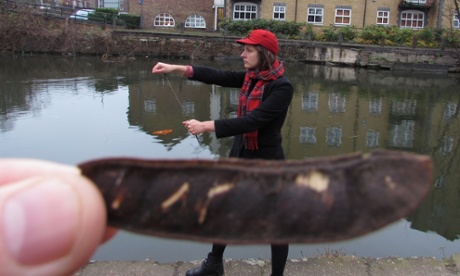
How to run a DIY theatre
Go out of the way to find a venue
Warehouses, squats, back gardens – pick an isolated location and create your very own cultural hub. Before you know it, faddist bars will be opening left, right and centre.
Don’t play it safe
Respond to the zeitgeist, take risks with new voices, and execute something that feels thrillingly unscripted.
Create a ‘charged’ space
As you walk into a theatre, you should experience the same ‘charge’ you feel when walking through a murky underpass at night. Make it feel like part of the city.
Forget about naturalism
Embrace the theatre’s fundamentally fake conceit by affirming the limits of the stage and involving the audience.
Engage the local community
You’re in this for the long run, so start forming meaningful relationships with the locals now. Allow people to sit in on rehearsals and keep ticket prices low.
Jay Miller – The Yard Theatre (theyardtheatre.co.uk)
How to run a DIY music venue
Put your punters first
The people who have travelled to perform on your stage or drink at your bar are your number one priority – keep them happy and they’ll keep coming back.
Know the rules
Regulations apply to every venue and event and you need to know your responsibilities and what you are liable for.
Don’t be afraid
Ask what kind of pull does a band have? Negotiate that rider down to what you can afford, or afford to lose. Pull people up on their attitude if it stinks.
Embrace other local businesses
Start locally and work outwards – working with local promoters, stocking local food and drink and booking local bands will help carve out a unique identity.
Welcome diversification
Think laterally about the space you have: who else can make use of it? Don’t be afraid to change it up a bit. Jumble sales, craft clubs; anything that engages a wider community can only be a good thing.
Be prepared to take risks
Running a venue is all about taking risks, and trying to foresee the future. Trust your gut: that artist you book may not have a big following now, but help to nurture that talent; some acts are slow-burners but it’s worth the wait if they come back and sell out your venue.
Dominique Frazer – The Boiler Room (theboileroom.net)
How to run a DIY cinema event
Find a space with spirit
Most people watch cinema in the same buildings with the same big screens. Forget that. Your cinema should have spirit, grimy loos and preferably a fully stocked bar.
Tell everyone
This event is not just for hardcore cineastes. Everyone needs to know! Don’t just rely on social media to spread the word – plaster your DIY posters all over town.
Get stuck in
No matter how democratic you or your collective are, somebody has to stick up the posters, build the screens, and deal with technical disasters. Energy is the answer! Enjoy it all.
Allister Gall – Imperfect Cinema (Imperfectcinema.com)
How to run a DIY gallery
Choose a good name
The gallery name came out of something that happened to us as students. We went to our first dissertation meeting with a really bad attitude, presented a random idea and got laughed out of the room and we started to be called Sunday Painters.
Find unconventional spaces
Our first shows were in a pub back room that staff used to smoke in. We proposed to do it up. We spent our student loan, revealed the parquet floor and built a white cube.
DIY isn’t just about aesthetic
We’d visited a number of shows put on by DIY initiatives and some had a really rough and ready aesthetic – chosen because it was easy, rather than thought through. We didn’t want anything to be throwaway. We were really thorough about everything down to the flyers that we screenprinted ourselves.
Establish a network
You need to find allies. We were part of an emerging London scene and once you had a few galleries it was easier to get visitors down. It’s a joint effort and information and advice is shared out. That’s the way it should be.
Be the support
You have to treat representation as a serious thing. You’re really getting in bed together. You have to really know the artist and make sure they’re genuine. Then you have to make the best environment for them to work in.
Will Jarvis – The Sunday Painter (thesundaypainter.co.uk)

